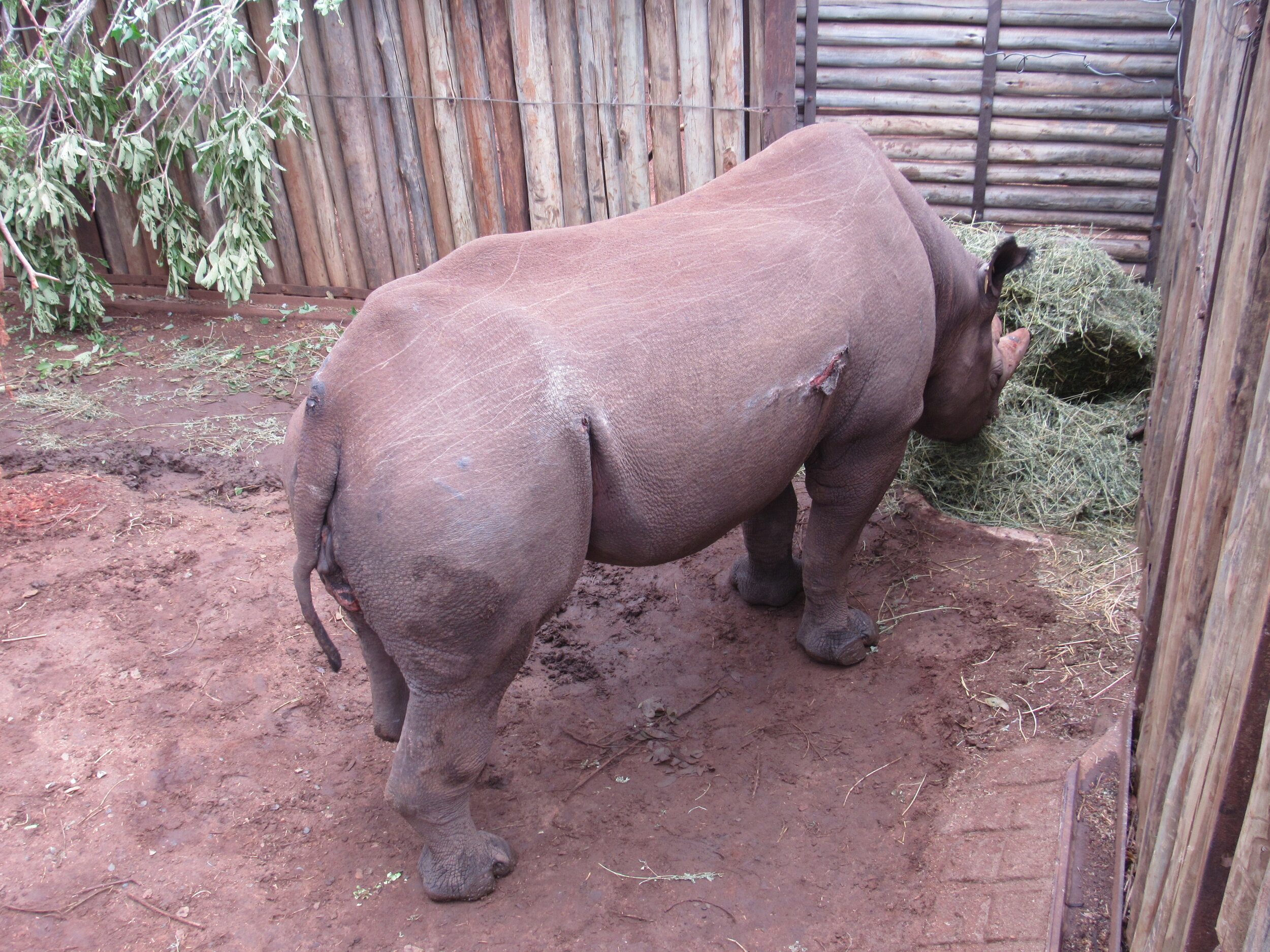Donjiwe’s Story
It is not known how long Donjiwe has been blind…
Donjiwe thin while recovering from horn injuries
Many rhinos live quite capably in the bush without eyesight, using their formidable senses of smell and hearing to navigate their world. Donjiwe, an adult female black rhino, was often sighted with a young male black rhino called Serval. The Lowveld Rhino Trust monitors noted that young Serval would gently call to Donjiwe as they moved – likely reassuring her of his presence. Together they looked like any normal fully-sighted pair of black rhinos feeding through the bush but after being shot by poachers and then severely horned by an adult rhino Donjiwe’s body condition dropped dangerously low. Young Serval could no longer be found and it was feared that Donjiwe would not be able to recover in the field so she was captured.
A very stressed and disturbed rhino arrived in the boma, reacting very aggressively to anyone approaching the enclosure. Her new home smelt totally foreign and with no eyesight she was overwhelmed with the stress of humans in such close proximity. For months, Natasha Anderson, head of rhino monitoring for LRT, worked on calming the anxious wild rhino. Eventually Donjiwe learned to associate her presence with the arrival of food which was delivered twice daily. The wounds and body condition gradually improved as did Donjiwe’s trust of the team caring for her. Donjiwe spent a total of four months in the boma.
A relieved Donjiwe in the water
As soon as the rains came and the bush had regained enough browse to provide food for Donjiwe, she was released back into the wild. Adjusting to a new environment is difficult for a blind rhino, as they have to map out a whole new area, and rely even more heavily on their sense of smell. Donjiwe’s first few days back in the wild were tense as she was very nervous and very easily disturbed. It was crucial that she settle close to a water point as rhinos need to drink daily. Early on Natasha was radio tracking Donjiwe and found her in a distressed state – Donjiwe could smell the waterpoint but could not find the path into it through the thick riverine vegetation. Whilst Donjiwe was in the boma, Natasha would speak to her so that she would associate her voice with the arrival of food. She decided to call for Donjiwe to let the rhino know that she was close and found that Donjiwe came to her voice. Donjiwe followed Natasha to the narrow game path that wound its way down to the water, and eventually Donjiwe was able to drink. These afternoons were repeated over the following few days and Donjiwe added the various paths to the map in her head.
Natasha can still call Donjiwe months after release and she follows. Although Donjiwe no longer relies on Natasha to find water for her, their bond means that she is comfortable with her presence. This unique relationship is a rare opportunity to observe black rhino behaviour in their natural habitat, offering insight into the different small forbs they eat during the rains and enabling study of how a blind animal manages to cope in the wild. The hope is that Donjiwe will eventually join up with one of the young orphan black rhinos released in the same area and again she can have a friend to call to her as they move together through the African bush.
Donjiwe back at home in the bush



